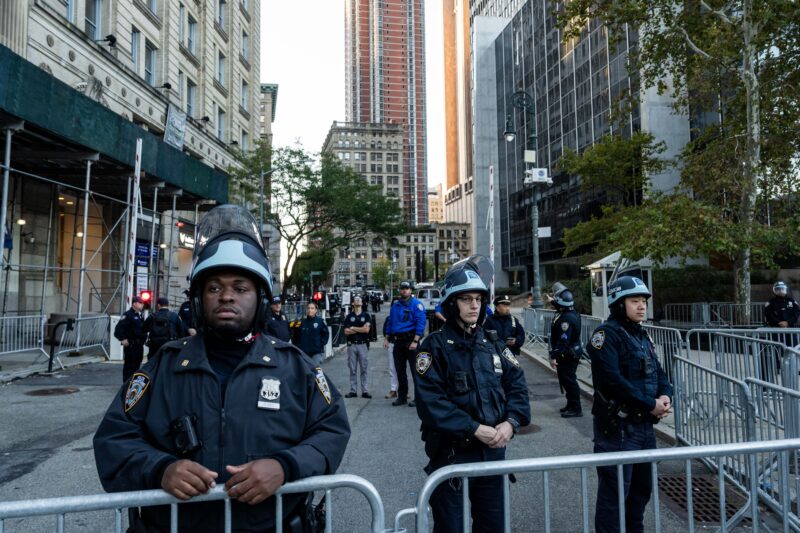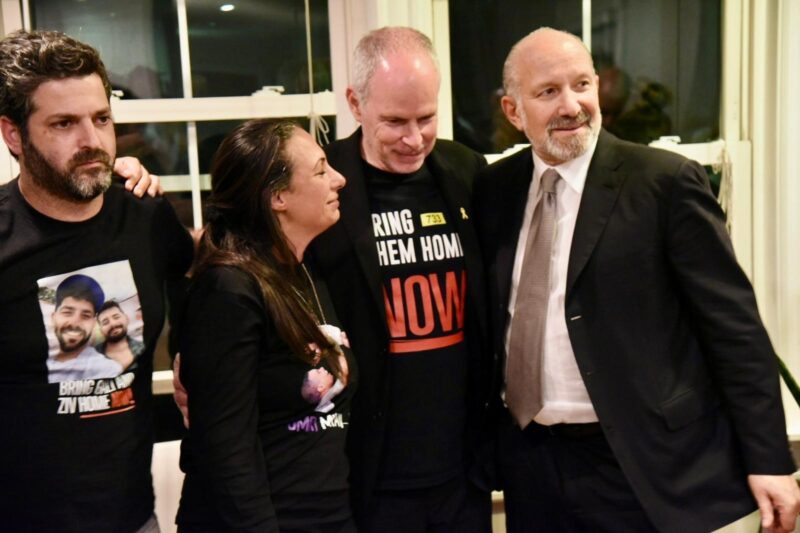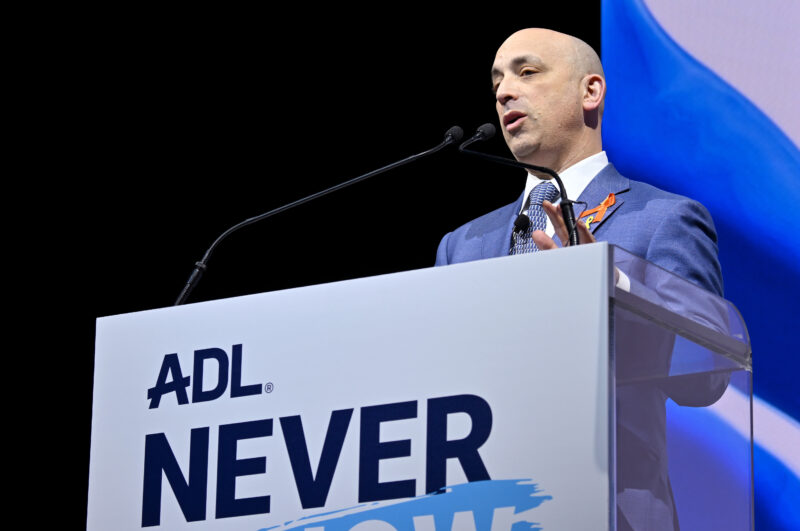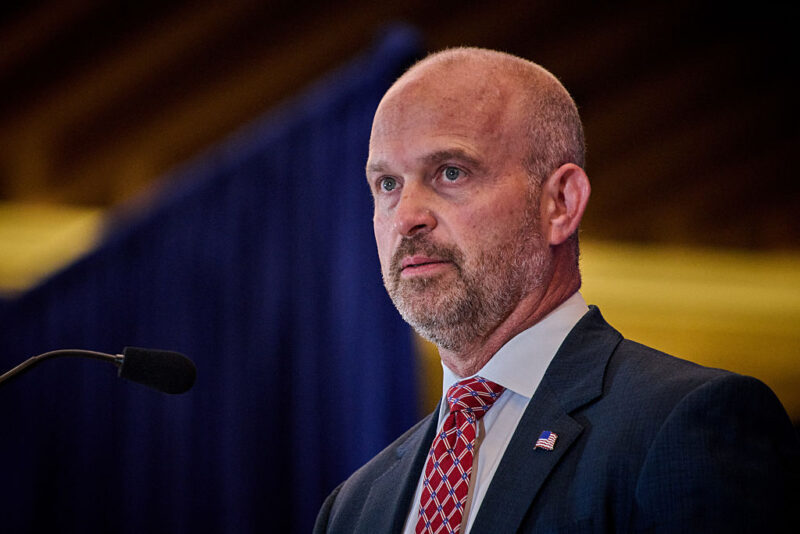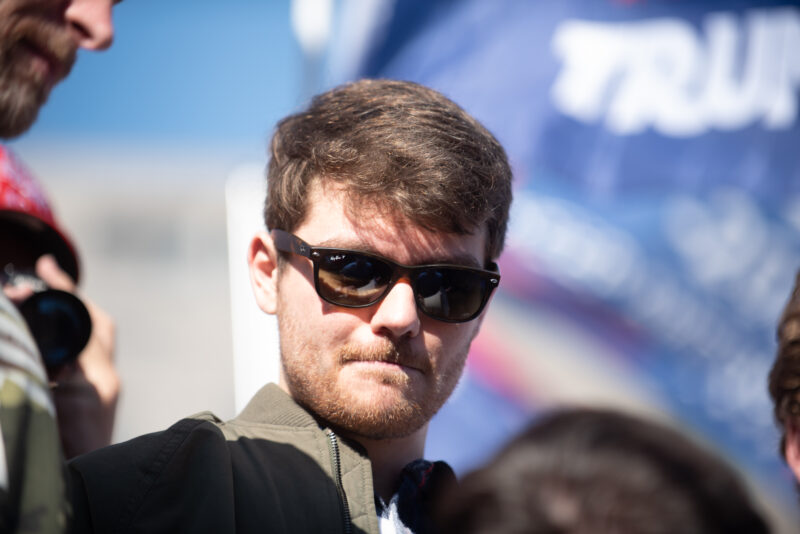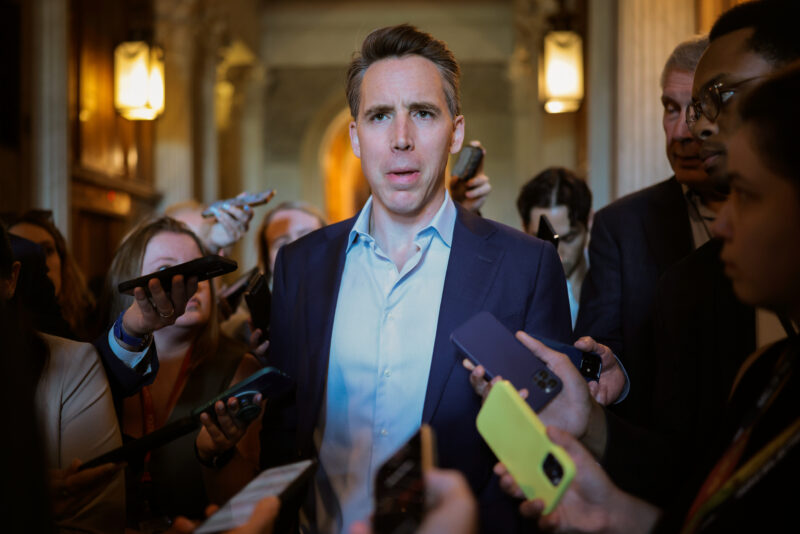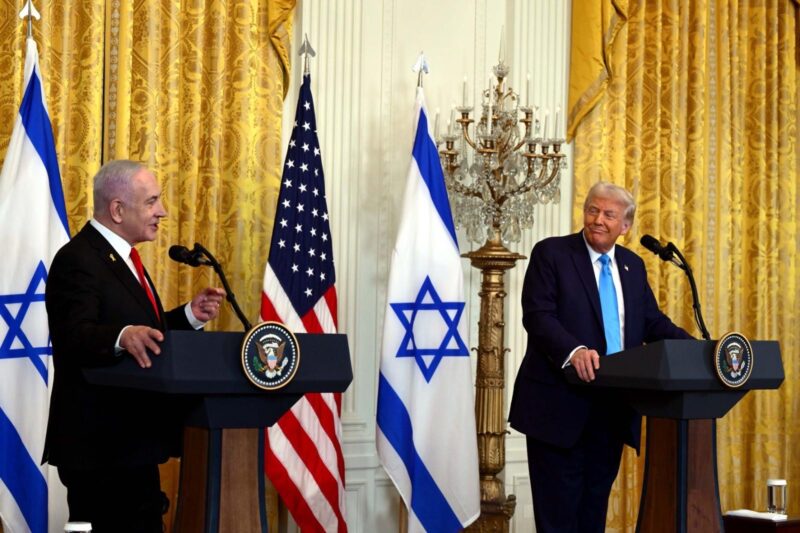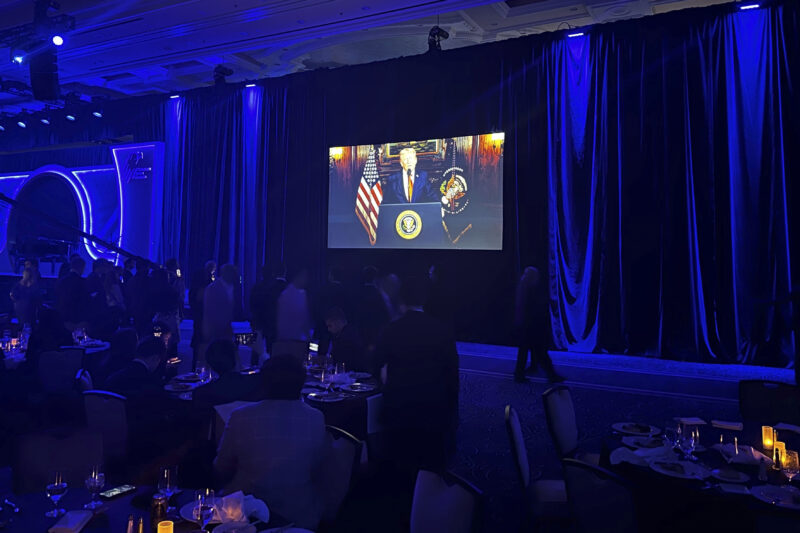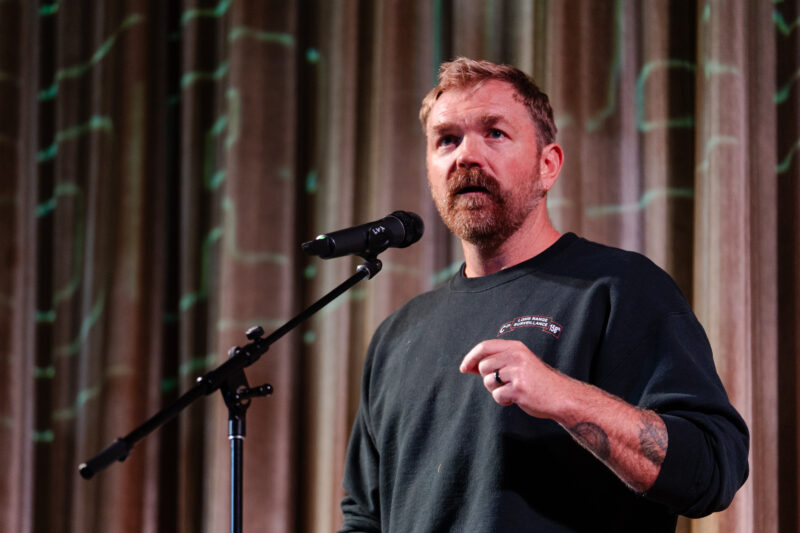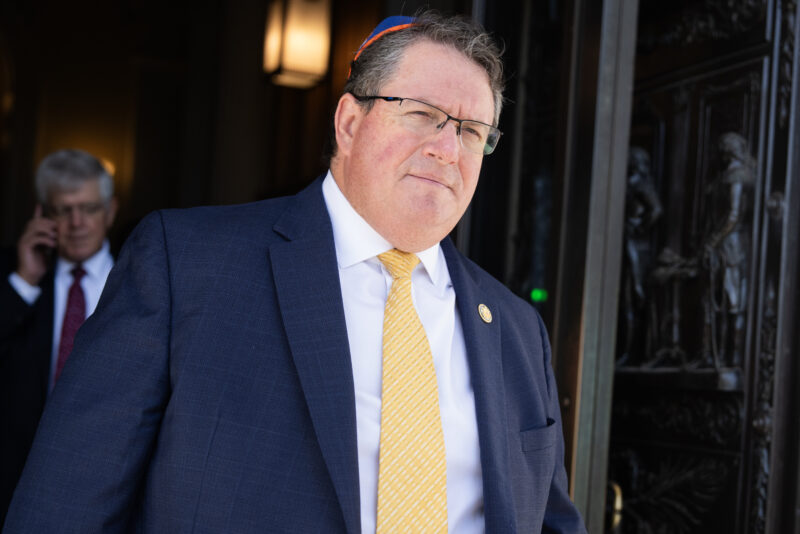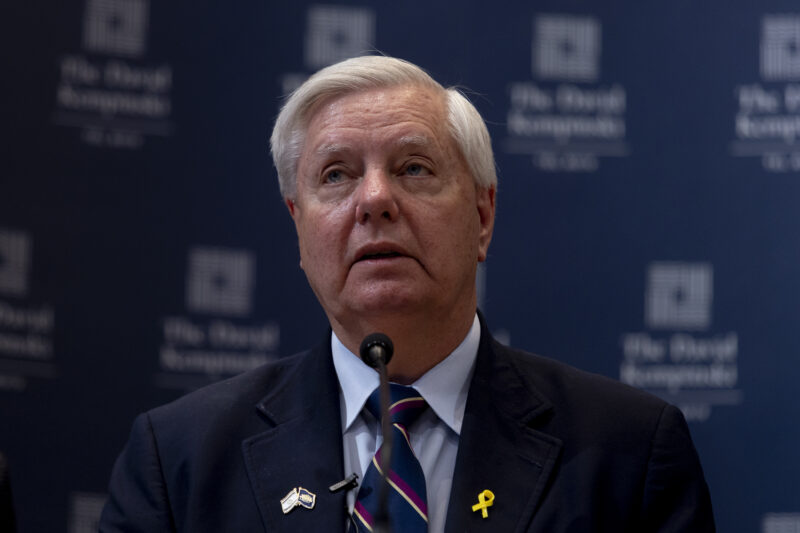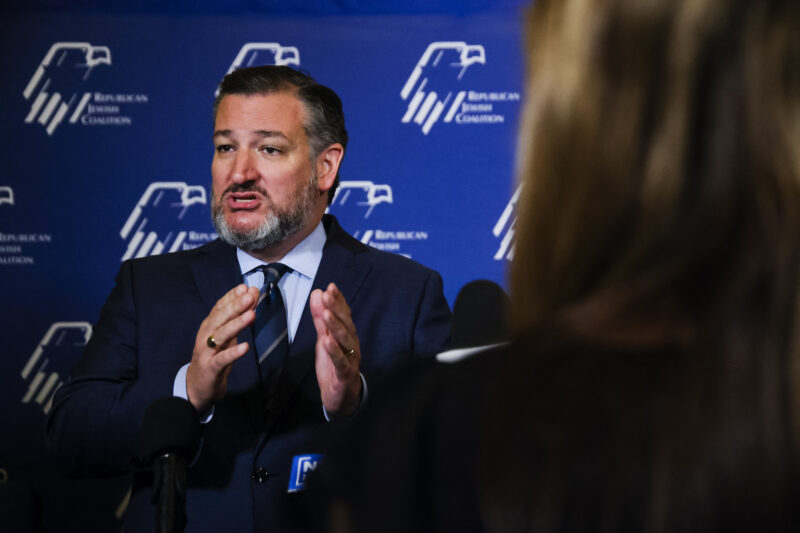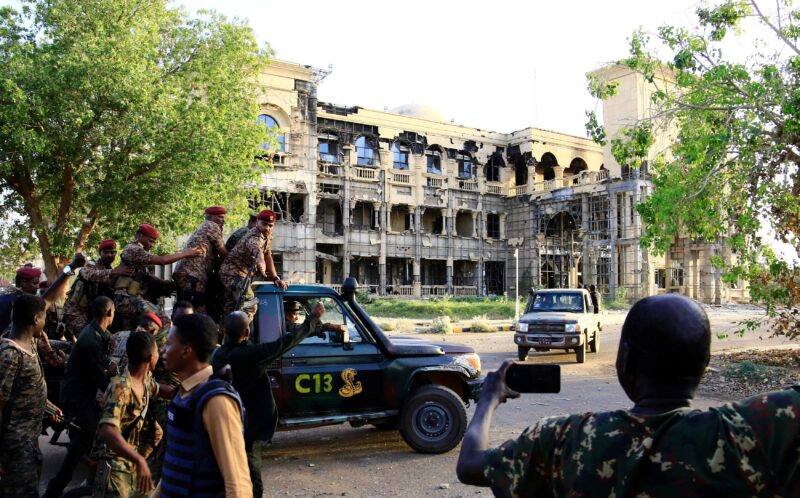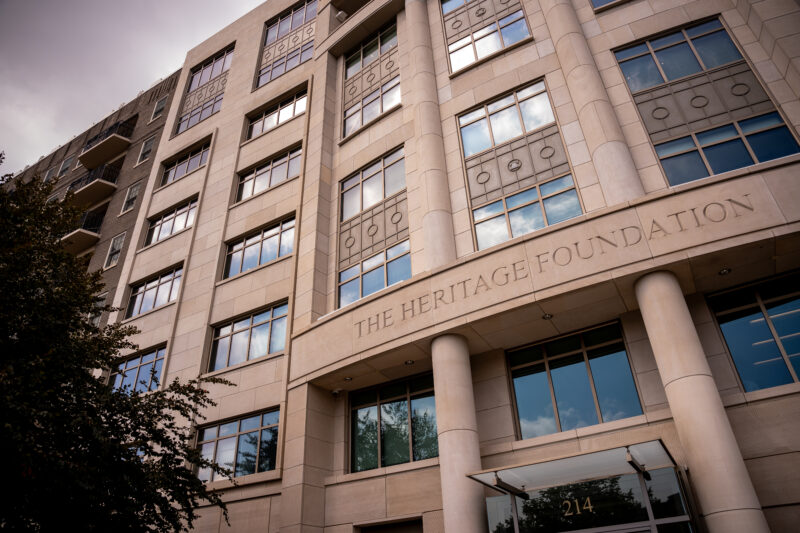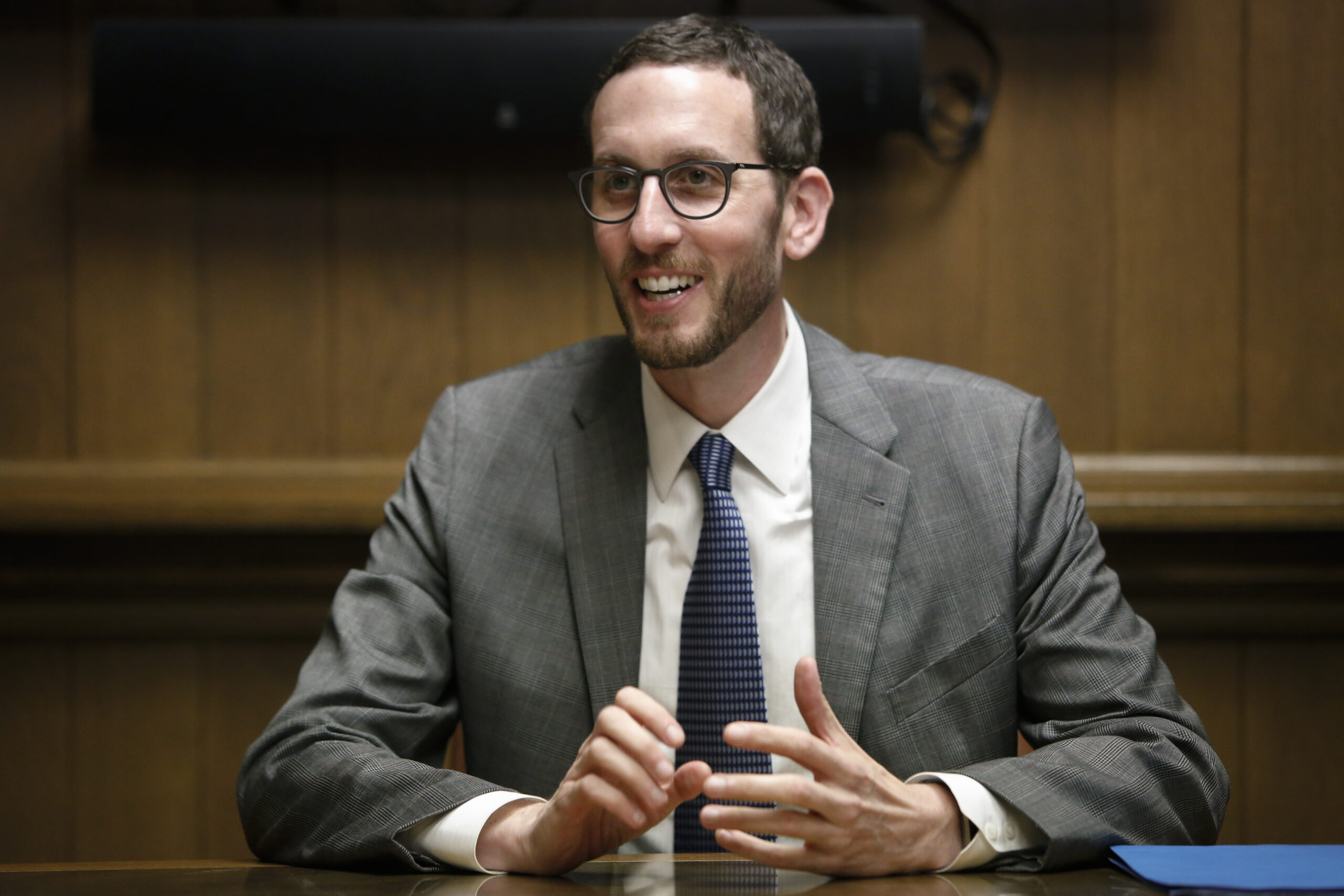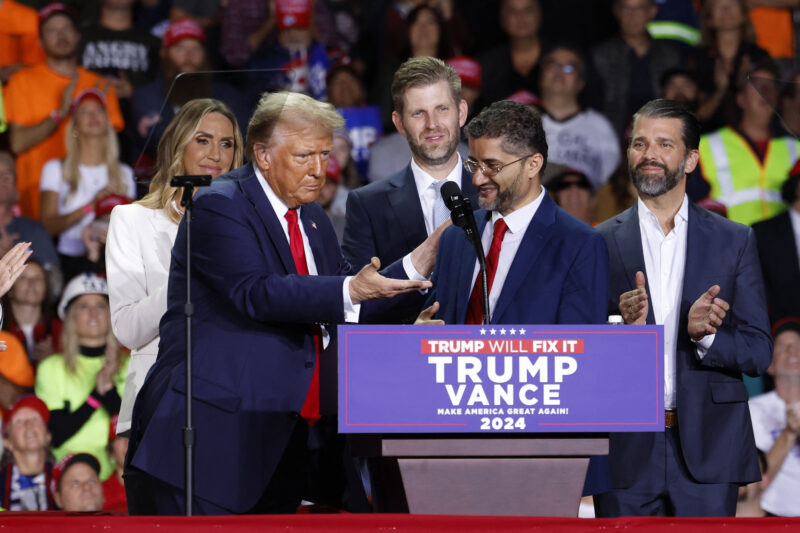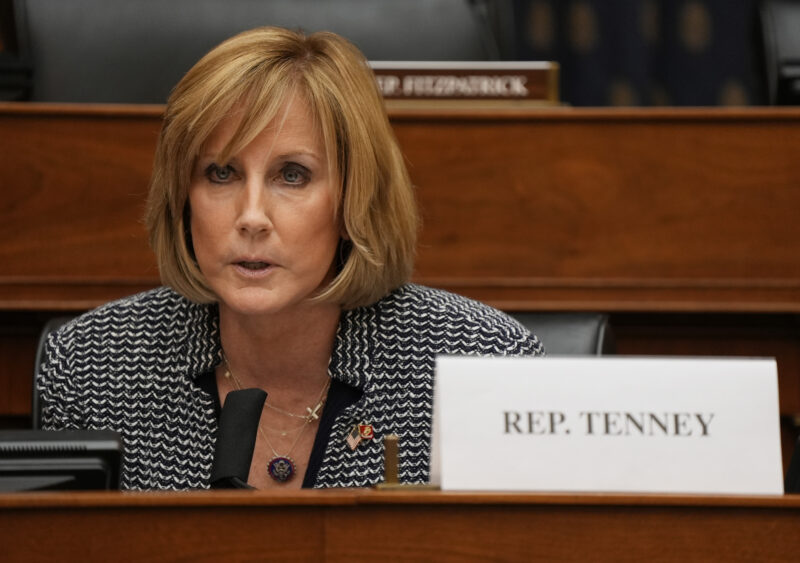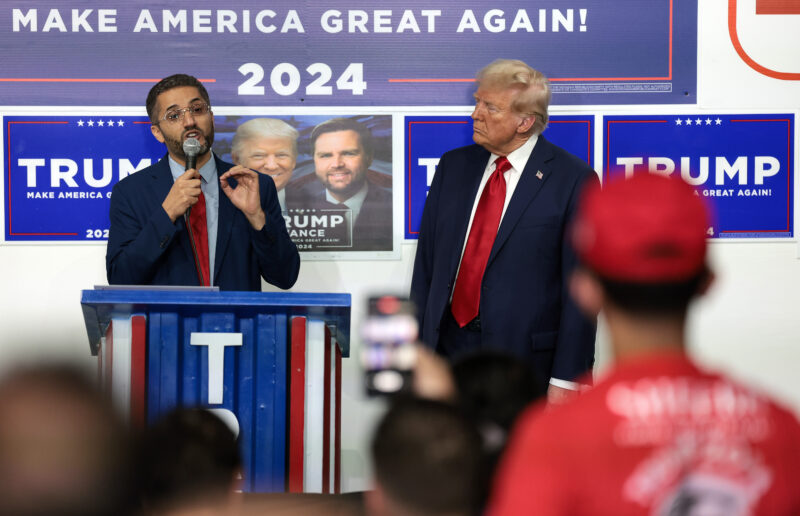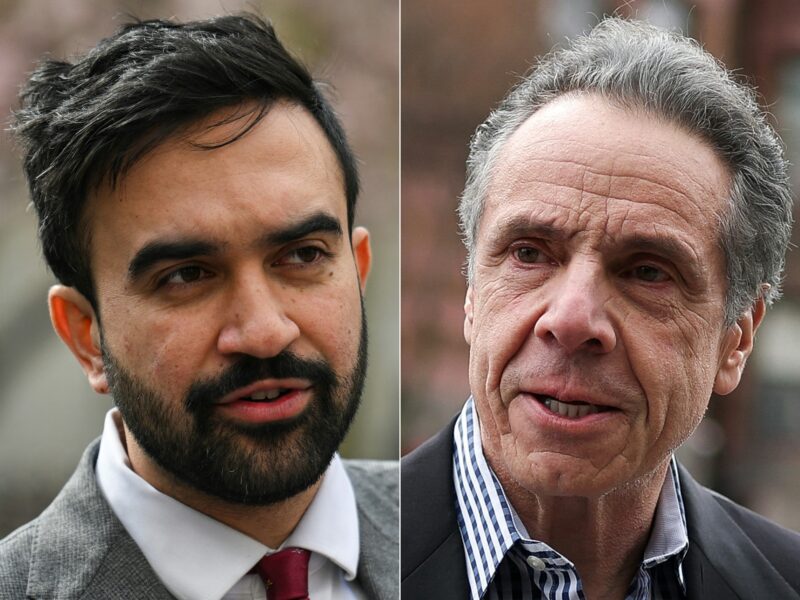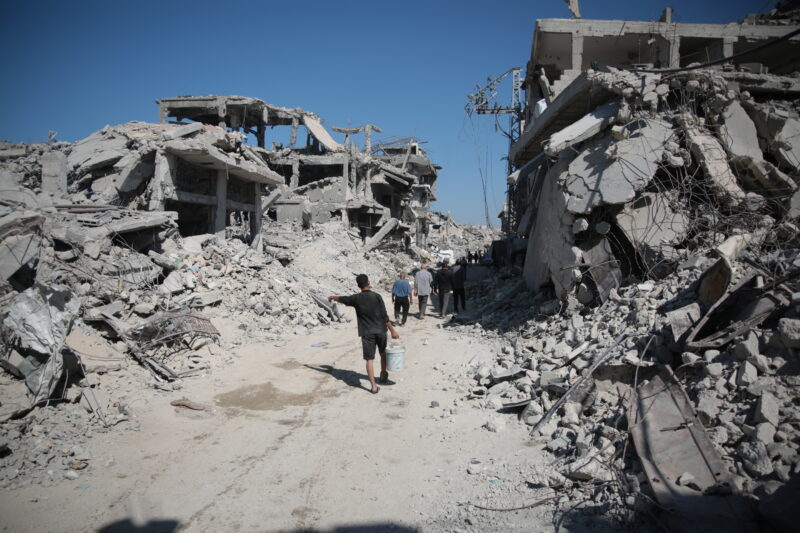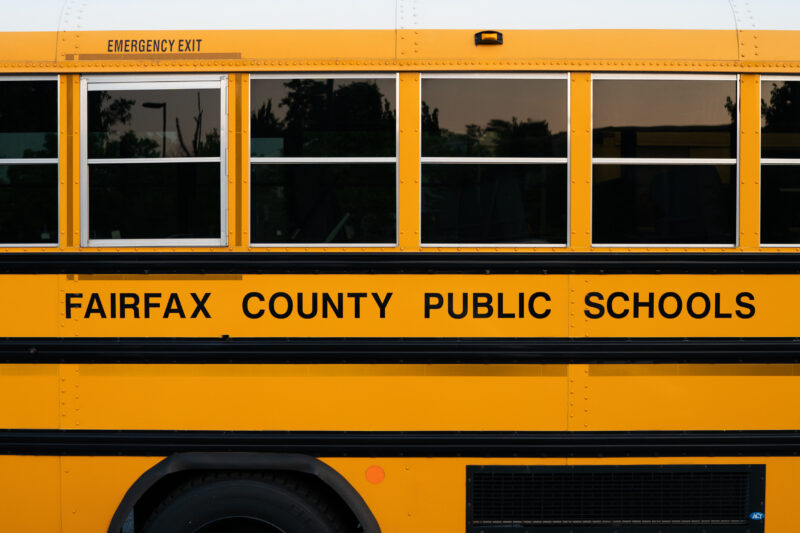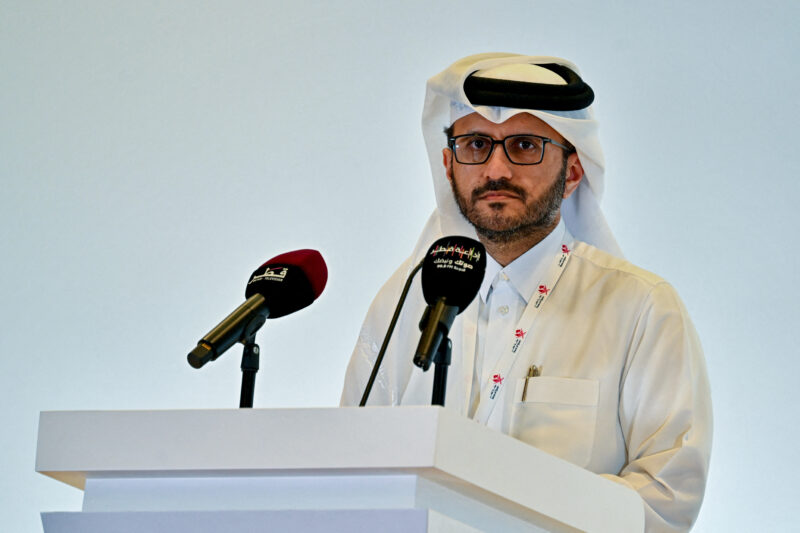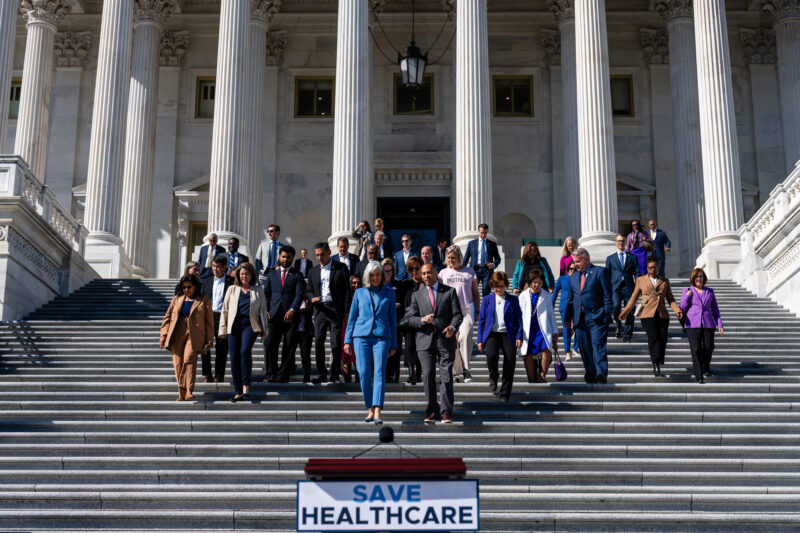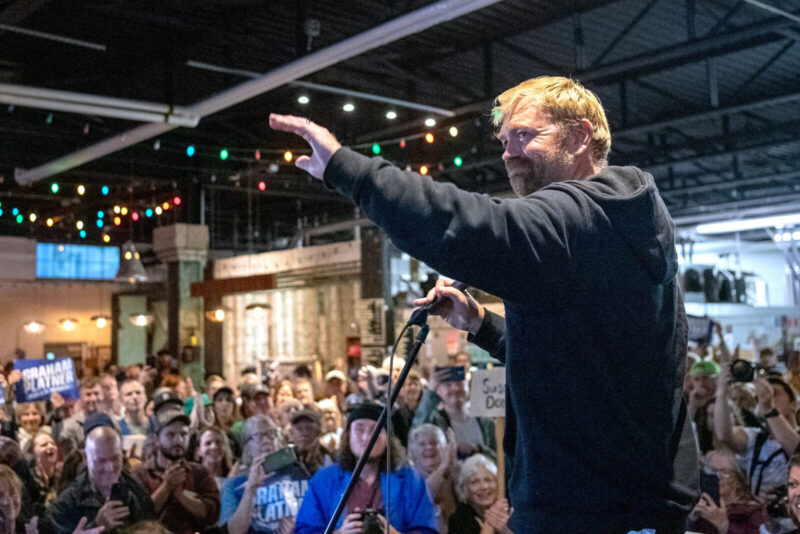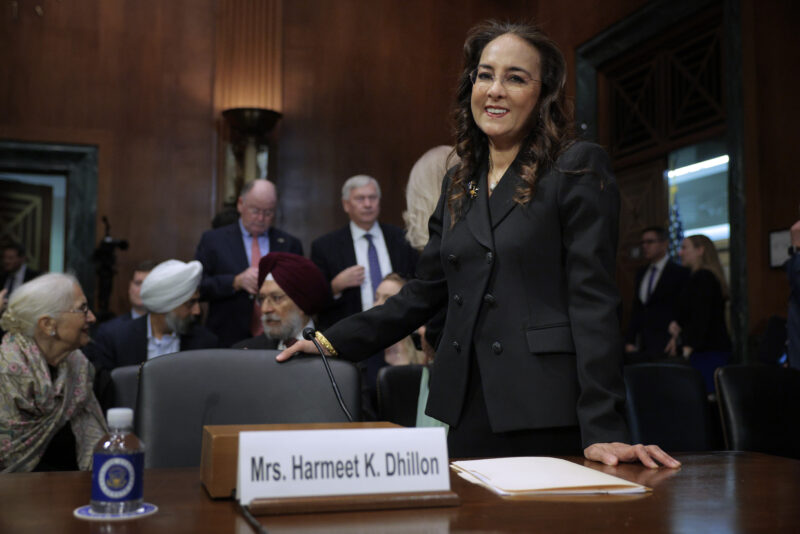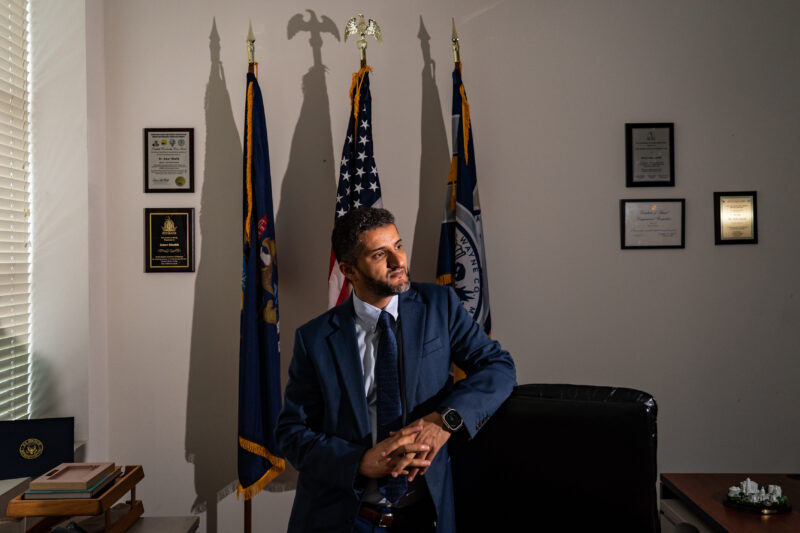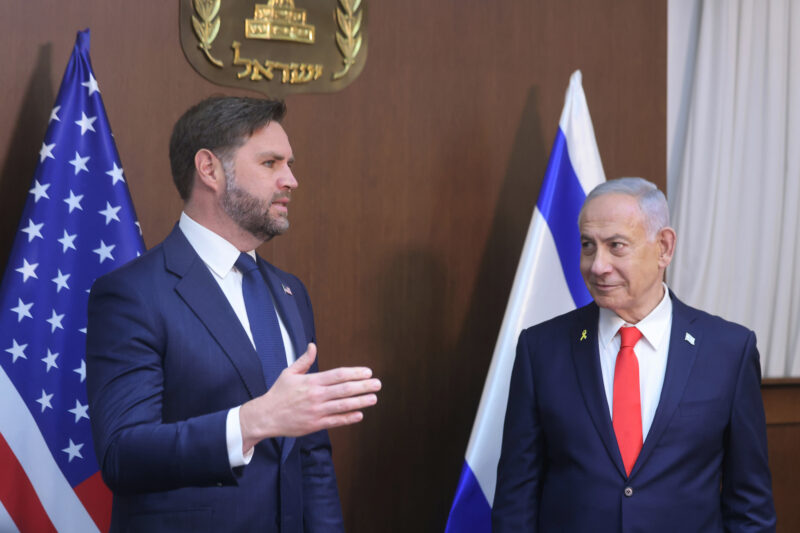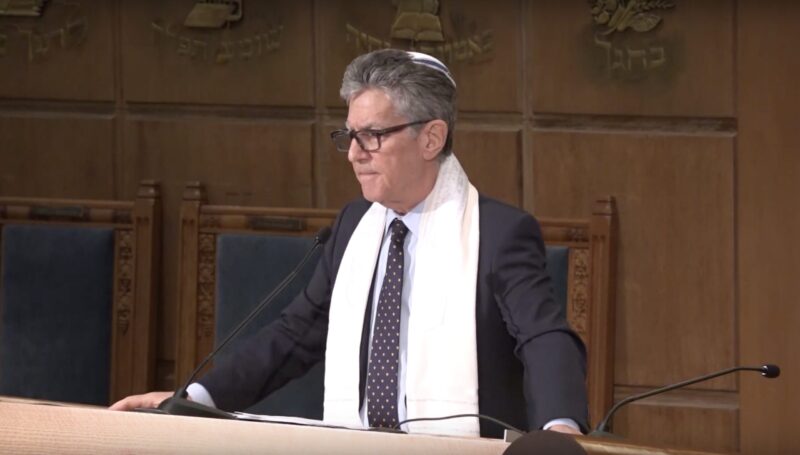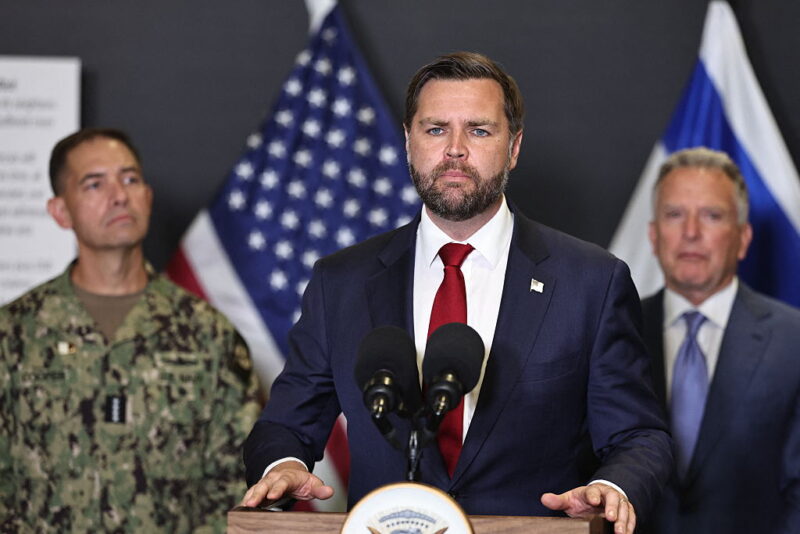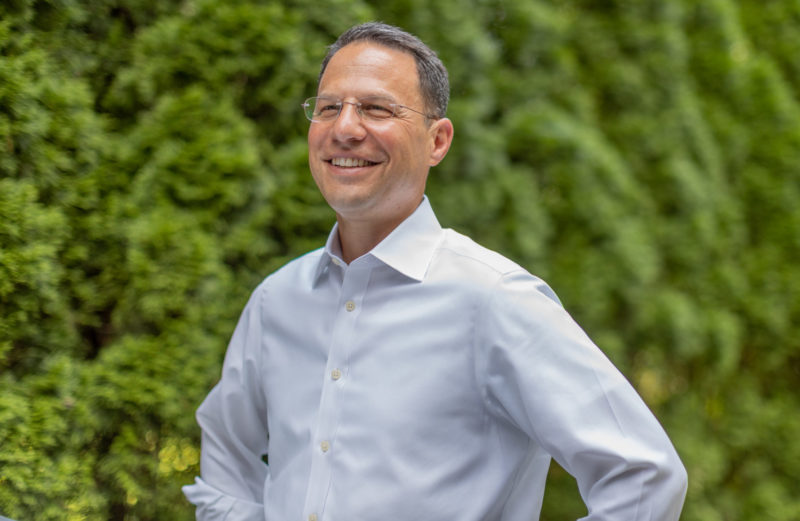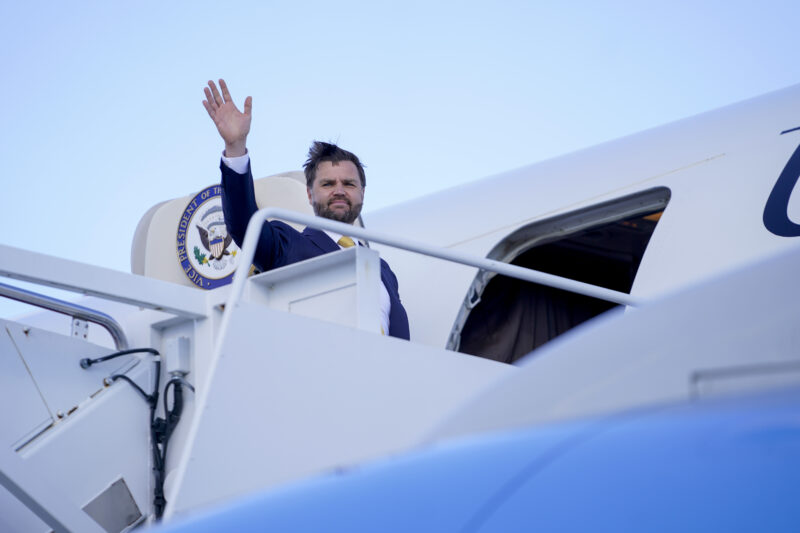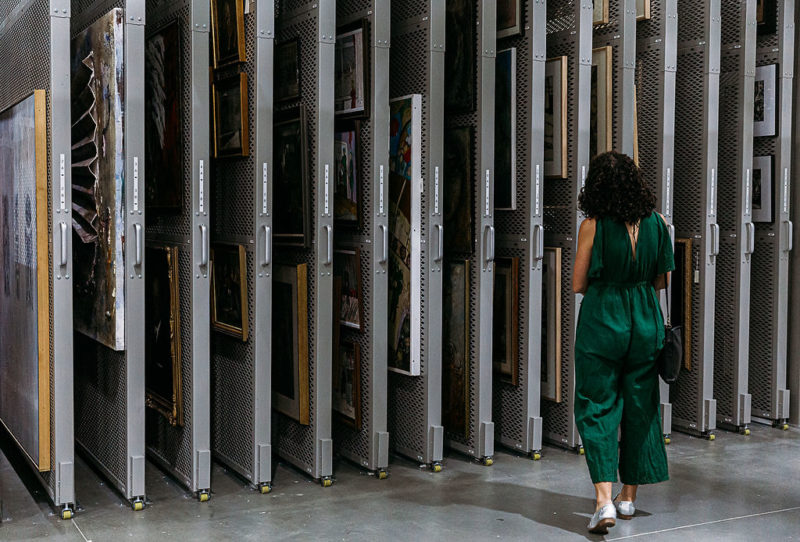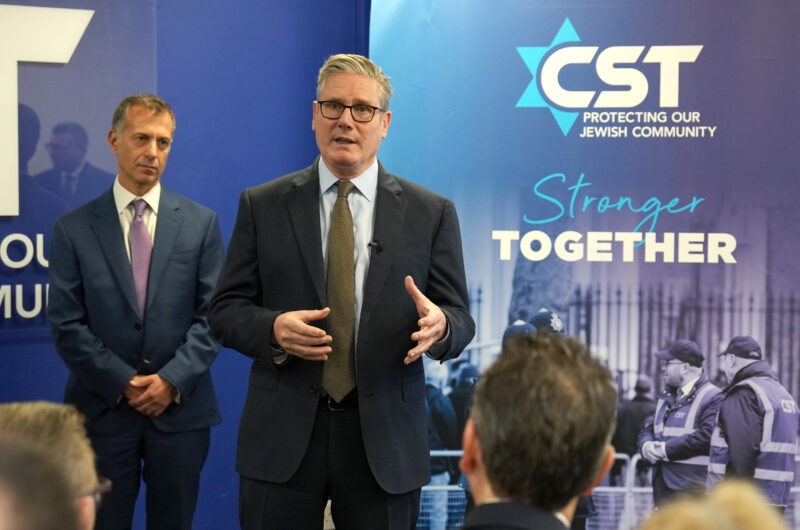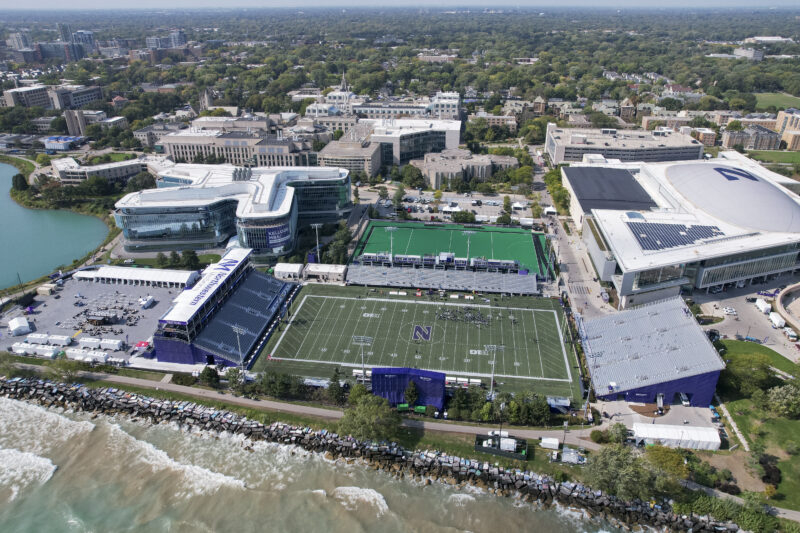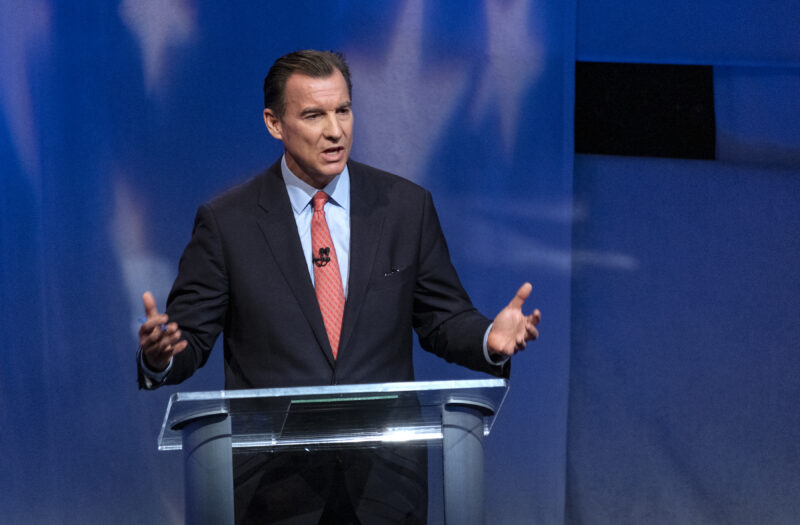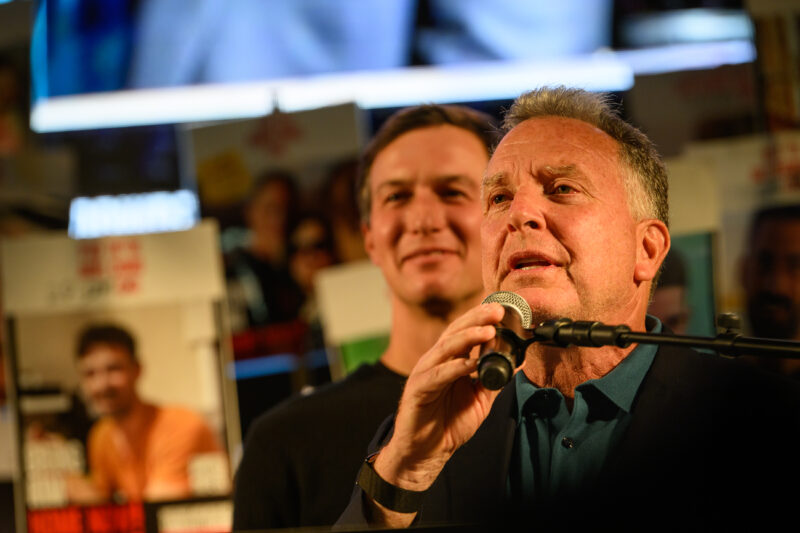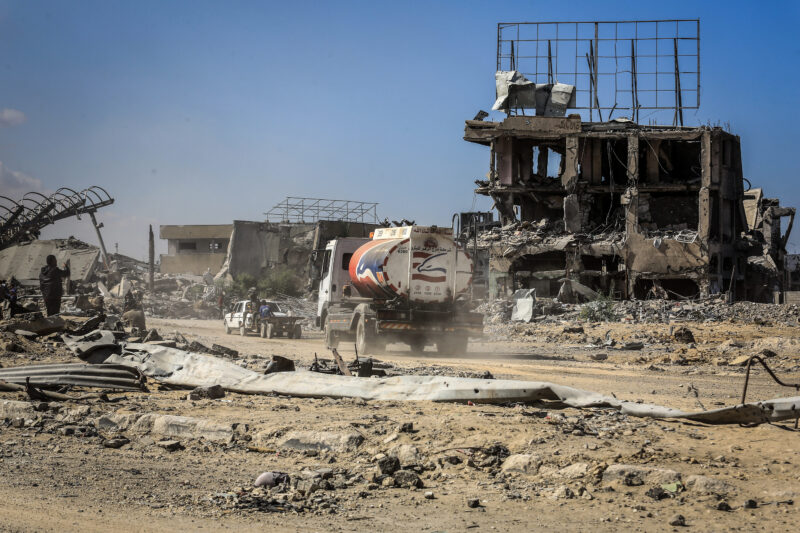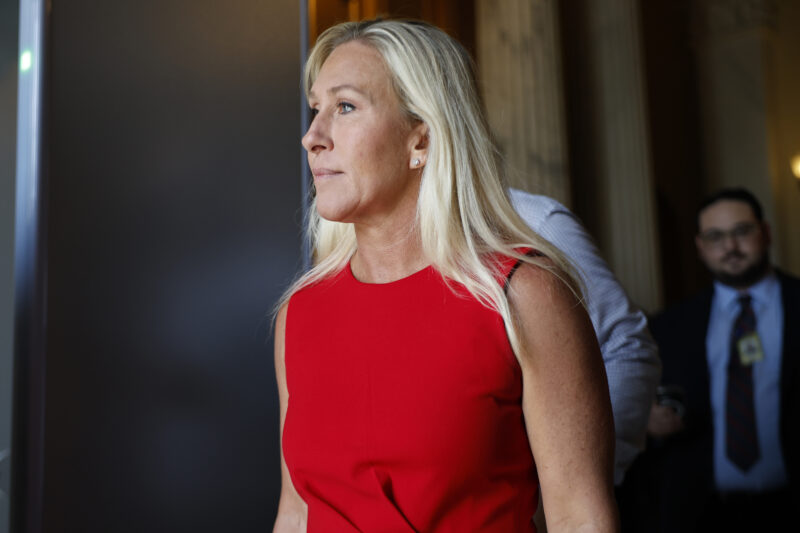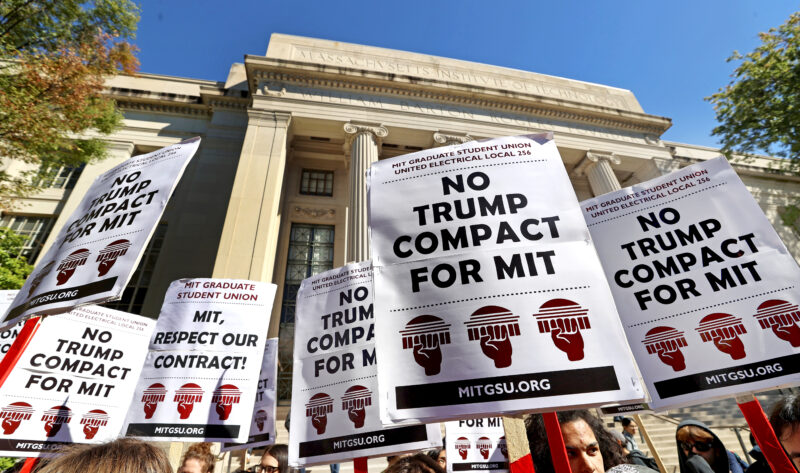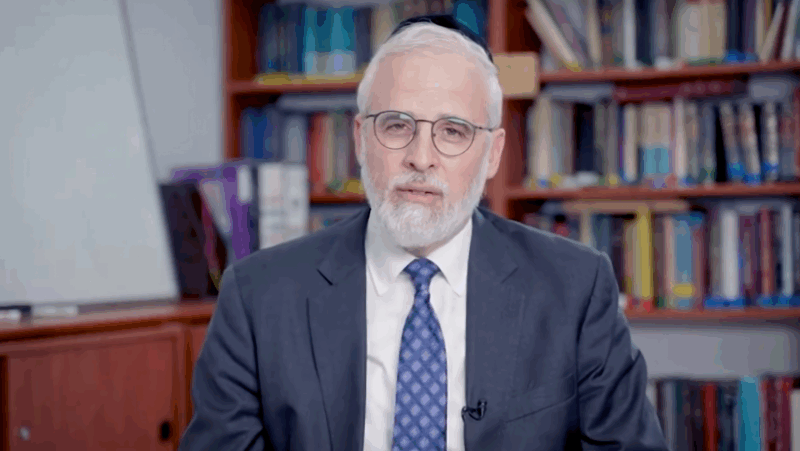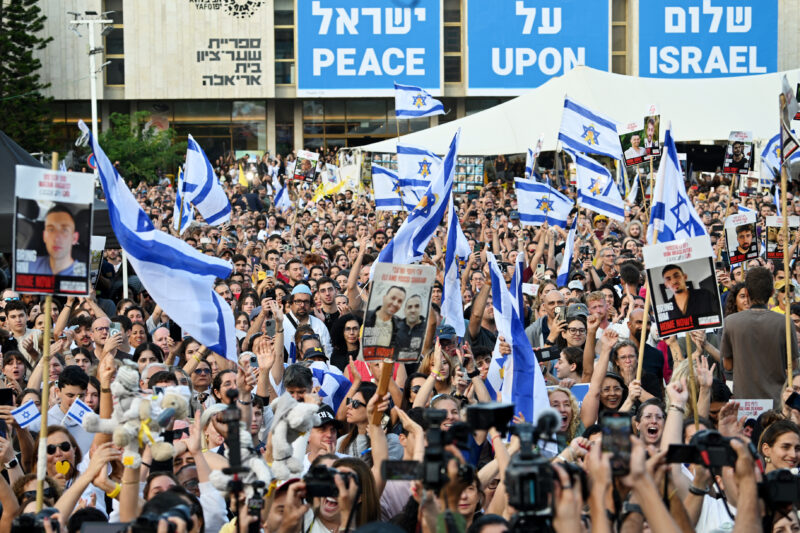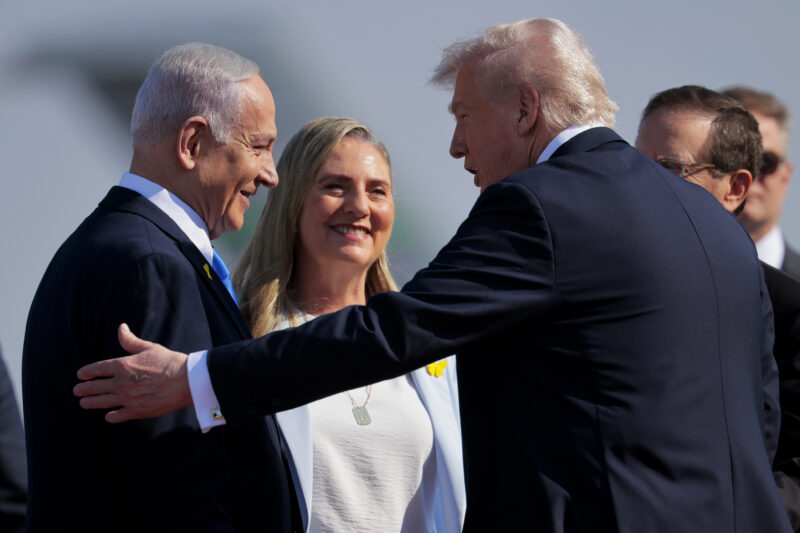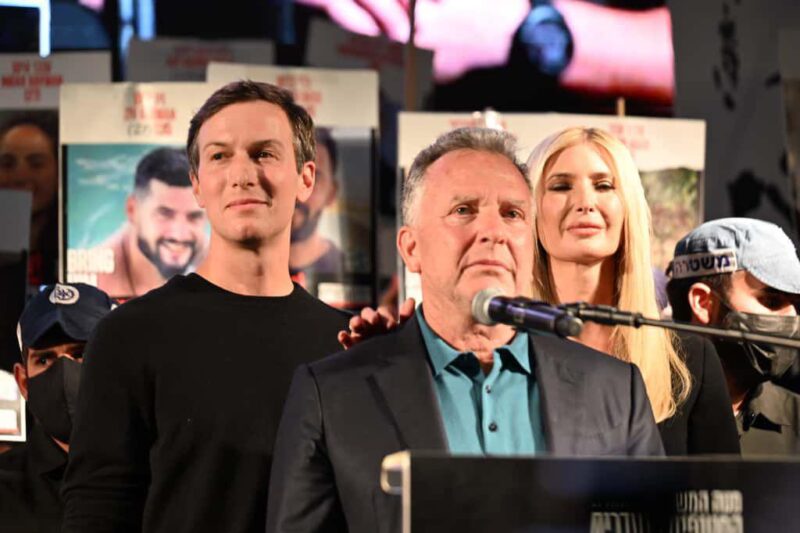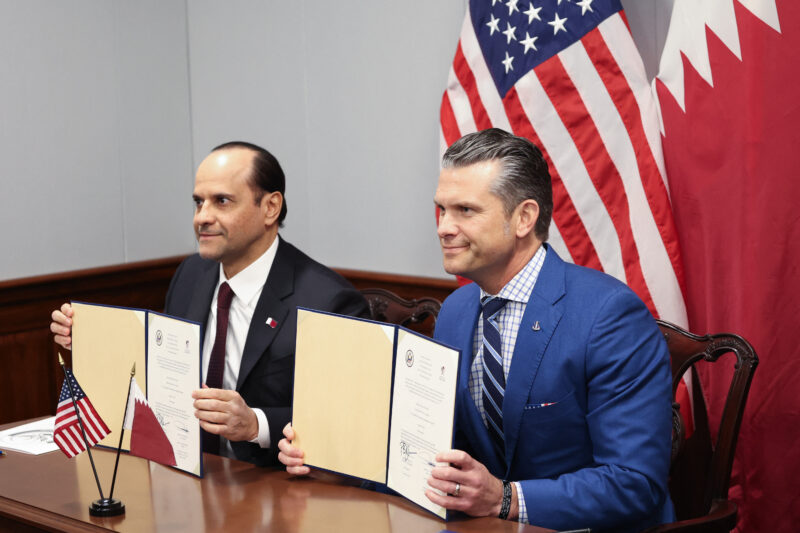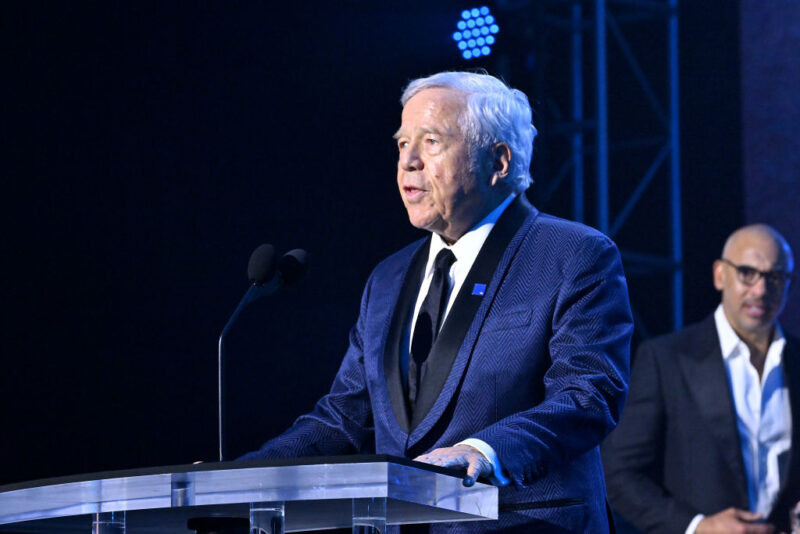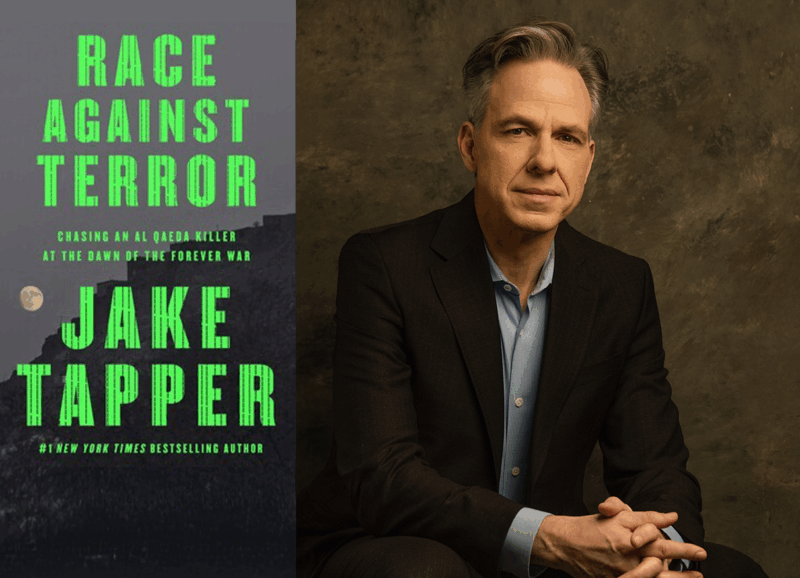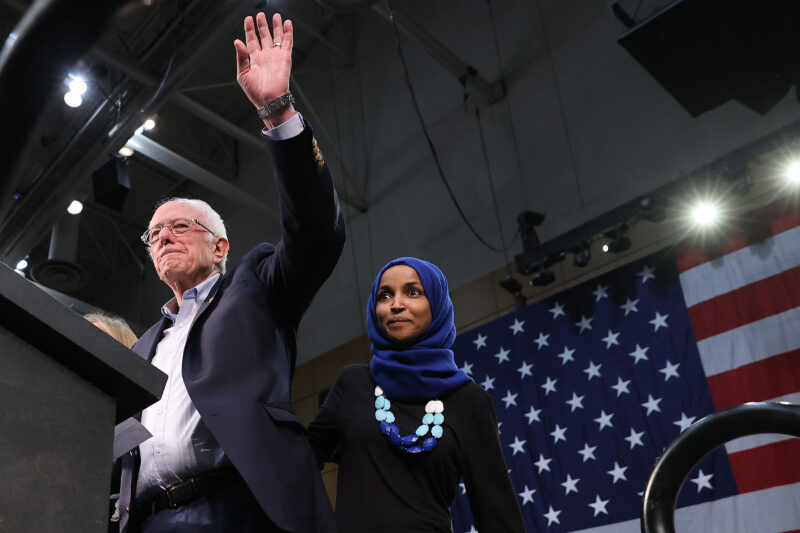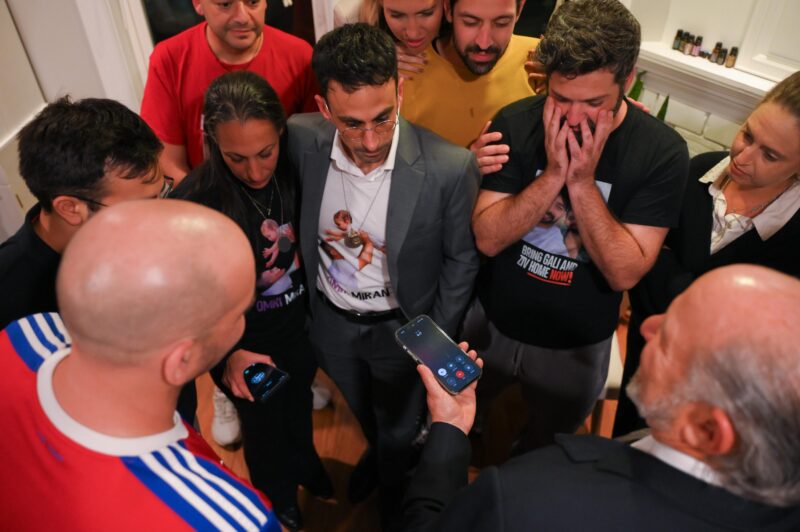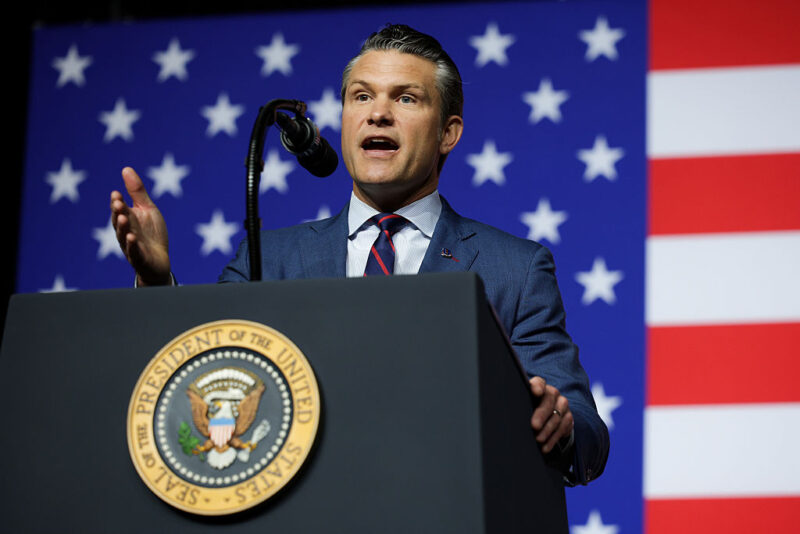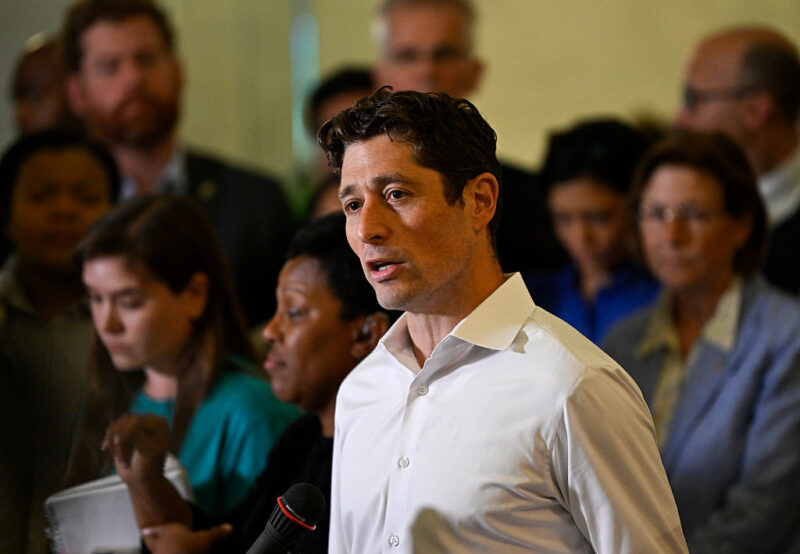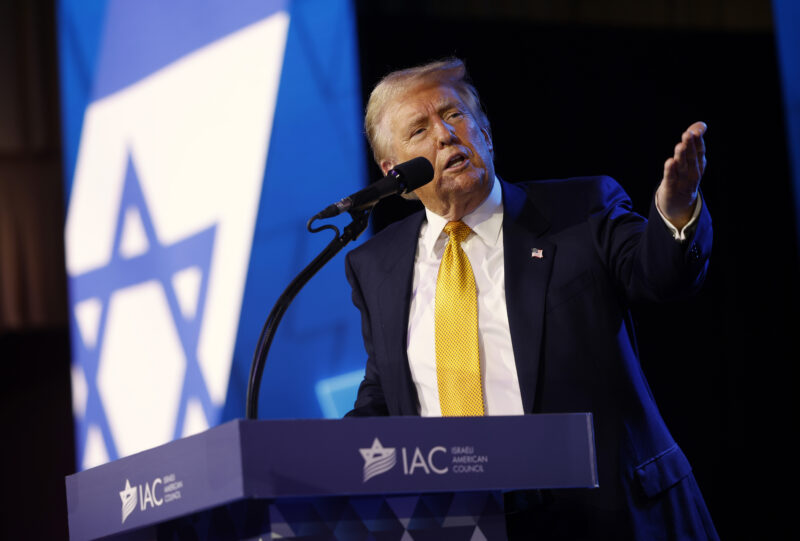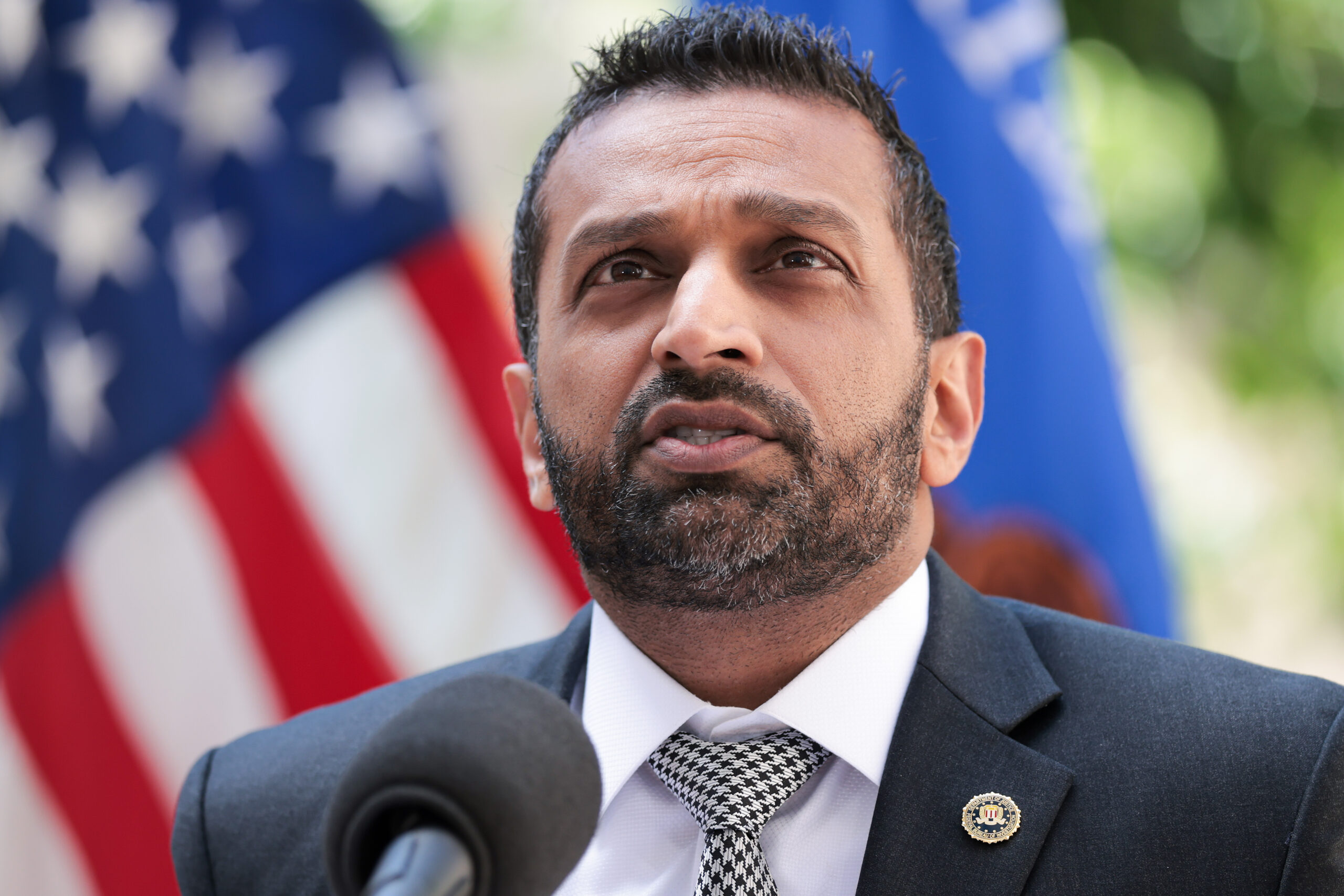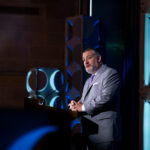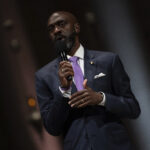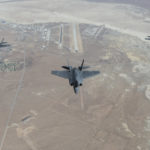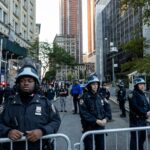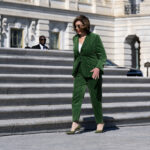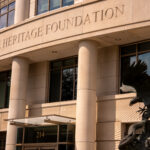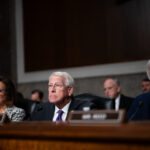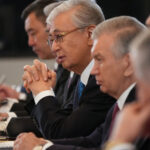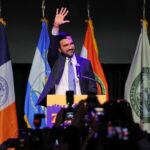Northwestern President Michael Schill defends deal with protesters in House antisemitism hearing
Schill claimed he made a deal with an anti-Israel encampment in the interest of protecting Jewish students
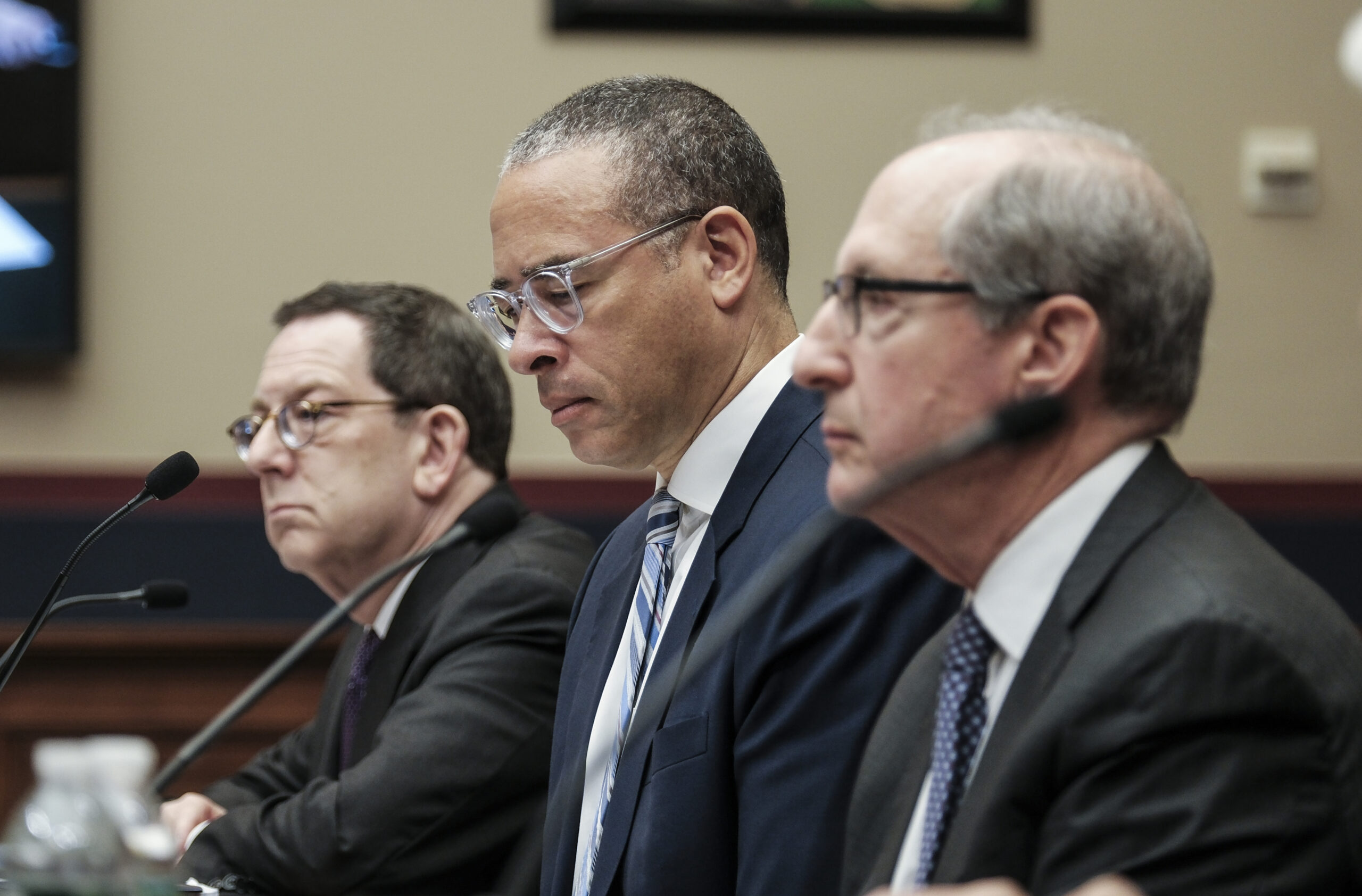
Michael A. McCoy/Getty Images
(L-R) Mr. Michael Schill, President, Northwestern University, Dr. Jonathan Holloway, President, Rutgers University and Mr. Frederick Lawrence testify at a hearing called "Calling for Accountability: Stopping Antisemitic College Chaos" before the House Committee on Education and the Workforce on Capitol Hill on May 23, 2024, in Washington, D.C.
Northwestern University President Michael Schill found himself on the defensive on Thursday throughout a House Education and Workforce Committee hearing on campus antisemitism, repeatedly providing nonspecific answers, in some cases refusing to answer specific questions and occasionally becoming combative.
Schill said that he had made a deal with an anti-Israel encampment — which he acknowledged was dangerous and engaged in antisemitic activity — in the interest of protecting Jewish students. By the end of the hearing, he faced calls from Republicans for his resignation or ouster.
He declined to answer various specific questions about incidents on campus, including whether Jewish students were assaulted, harassed, stalked or spat on, citing ongoing investigations; when those investigations might be completed; whether it was acceptable for faculty to obstruct police officers; and whether he would have made a similar deal with an encampment of Ku Klux Klan members.
Asked whether it’s acceptable for students or faculty to express support for terrorism, Schill responded, “are you saying, OK meaning, is it something that I would do?… Our professors and our faculty have all of the rights of free speech.”
He said that there have so far been no students suspended or expelled in connection with antisemitic activity but that investigations are ongoing and that some staff had been fired.
The Northwestern president, who is Jewish, indicated he’s proud of the university’s deal with protesters, which has been widely condemned in the Jewish community, describing it as a “hard decision” with a “good result.”
“The danger posed grew every day it stayed up,” he said. “Every day brought new reports of intimidation and harassment,” as well as “antisemitic behavior that was making our Jewish students feel unsafe.”
He said that he saw three options for dealing with the encampment: allowing it to remain indefinitely, which was not an option; sending in police and staff to make arrests, which he said was impractical because of a lack of personnel and “too high a risk to our students, staff and police officers”; or negotiating with demonstrators.
He downplayed the nature of the concessions the university had made to the demonstrators, claiming that many of the agreements made had already been in the works before the encampment or were connected to preexisting programs. He claimed the university had not actually conceded to any of the demonstrators’ demands.
Pressed on details, Schill downplayed the deal as “just a framework of an agreement that was reached with the students at 4 o’clock in the morning” and at one point told committee members to consult Northwestern’s website for specifics.
And he said that “nothing in the agreement… specifically addressed the interests of Jewish students, other than getting rid of that encampment.” He claimed that the deal “gave them the ability to feel safe on campus.”
Local and national Jewish groups have said that the deal instead normalized and rewarded those engaging in hateful activity, without any support for the Jewish community.
Schill acknowledged that no Jewish or Israeli students, nor the university’s antisemitism task force, nor the full university Board of Trustees, were consulted before he made the agreement, claiming that would have been “impractical.” But a professor who is an outspoken promoter of the Boycott, Divestment and Sanctions movement was consulted.
Rep. Virginia Foxx (R-NC), the committee chair, argued that Schill’s deal had created a poor precedent for other university chairs, in effect encouraging them to also make concessions.
“President Schill’s testimony today clarified his leadership imperils Jewish students and that he has failed at virtually every turn to take antisemitism on Northwestern University’s campus seriously,” the Anti-Defamation League Midwest said in a statement.
Northwestern’s antisemitism task force collapsed, with the resignations of seven members, after Schill’s agreement, though he said the school plans to implement a new task force.
Lawmakers highlighted a series of concerns about the initial task force, including the fact that it had no members who were experts on antisemitism, and some who were openly anti-Israel and supported antisemitic slogans.
Schill responded that the task force’s focus was intended to be broader than antisemitism, a mission he concluded was “impossible.” He also claimed the members had resigned in part because the task force was “unable to reach a consensus on what antisemitism was.”
The Northwestern president downplayed the significance of the hundreds of millions in funding Northwestern has received from the Qatar Foundation, saying that all of that funding went to support the Northwestern campus in Qatar.
He said he was unaware until recently that Northwestern’s journalism school had partnered with the Qatari state-run media outlet Al Jazeera, that he was “concerned” about it and would review the partnership.
Schill appeared at the hearing alongside Rutgers University President Jonathan Holloway and University of California, Los Angeles Chancellor Gene Block; Schill took the brunt of the questioning, but the other two presidents also came under the committee’s microscope.
Holloway, who also struck a deal with protesters, offered a similar justification as Schill, characterizing his decision as a quick and proactive move to prevent disruptions to exams.
“We made a choice. That choice was to engage our students in dialogue as a first option, instead of police action,” he said. “If ever there was a time to dialogue and focus on civil discourse, it is now… It was made clear that we were going to allow the encampment and consider it a speech act in the spirit of First Amendment free expression” unless it disrupted university business.
Holloway was also pressed on Rutgers’ Center for Security, Race and Rights, whose leader and featured speakers praised Hamas and spread Oct. 7 denialism; the center also hosted a speaker convicted of providing material support for terrorism.
Holloway described the activity as “wildly offensive” and said “there is very little I find easy about the center. I personally disagree deeply with a lot of the ideas that come from that center.” But he said that there are many events on campus of which he is not aware and that he has no plans to shutter the center.
He was also pressed on Rutgers’ relationship with Birzeit University in the West Bank; the school has glorified terrorists, Hamas won a recent student election, several students were arrested for planning terrorist attacks and Jews are banned from the campus.
Holloway said Rutgers “partner[s] with institutions all around the world” and said he was unaware of the details about the university and would look into the issue further.
Holloway said that four students have been suspended and 19 others received other forms of discipline.
Block, unlike the other two presidents, did not make a deal and ultimately called in police assistance to clear the encampment after a violent clash between encampment members and counterprotesters.
He struck a somewhat different tone than the other presidents, acknowledging that the school had mishandled the situation and acted too slowly.
“With the benefit of hindsight, we should have been prepared to immediately remove the encampment if and when the safety of our community was put at risk,” he said.
Yet, as Block was testifying to the committee, demonstrators reestablished an encampment on UCLA’s campus.
Block said no UCLA students have been suspended or expelled, but that more than 100 investigations into antisemitism and islamophobia are ongoing, in addition to police probes into the violence.
In another notable moment, Block pushed back on Rep. Ilhan Omar’s (D-MN) attempts to downplay the severity of anti-Israel activity on campus.
Omar described the encampment as “peaceful” and protected by the First Amendment, characterized the encampment members as the ones being harassed and ultimately blamed Block for the attack on the encampment by counter protesters. She also brushed aside an incident in which a Jewish student was blocked from walking down a public pathway on campus to a class building.
“This encampment was against policy, it violated time, place, manner [restrictions],” he said, before being cut off. He also said it’s “really inappropriate” for students to be blocked from any part of campus, regardless of whether other pathways were available.





